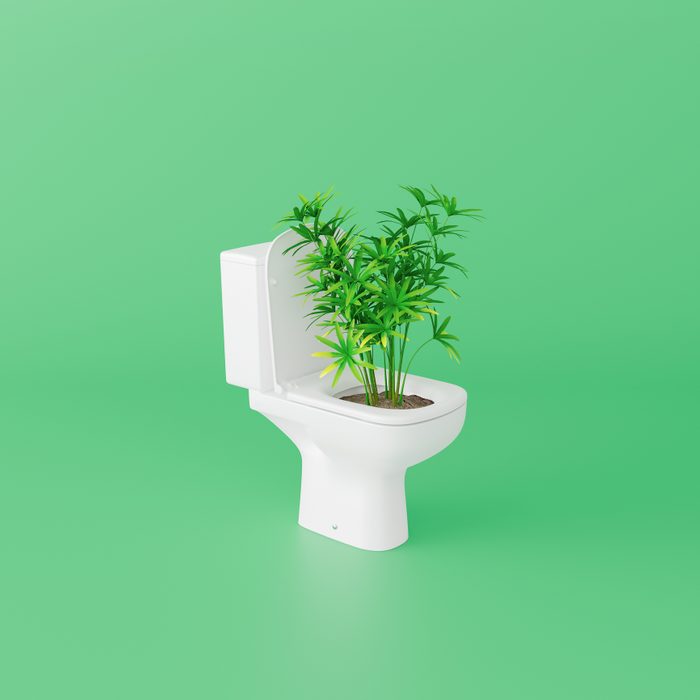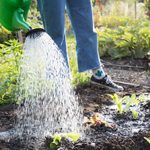Could Peecycling Help Struggling Farmers?

Some say peecycling—saving and donating your urine—could be a solution to the worldwide fertilizer shortage and the global food crisis.
A potential solution to the global food crisis is only a toilet flush away. Actually, hold the flush. Actually, skip the toilet altogether. It turns out that one way to help farmers feed the world is to save, store and donate your urine. Yes, it’s true. It’s called “peecycling” and though it may seem a little gross, it can actually help with the worldwide fertilizer shortage caused by the Russian invasion of Ukraine.
What Is Peecycling?
The term peecycling comes from a combination of peeing and recycling. Peecycling is actually a real thing that’s happening, spearheaded by the Rich Earth Institute in Brattleboro, Vermont. As part of the institute’s Urine Nutrient Reclamation Program, people can donate their pee. The Rich Earth Institute distributes 2.5- and five-gallon plastic jugs with odor-blocking funnel attachments. According to the institute, the setup “can be used as a urinal or an easy-to-pour-into container,” by using the nun’s cap or yogurt container and then pouring the contents into the funnel. They even distribute a “decorative cloth cozy” that fits over the jug for privacy. They also rent urine-collecting portable toilets for public events.
How Does Urine Work As Fertilizer?
Human urine is a rich source of nitrogen, phosphorus and potassium. According to the Rich Earth Institute, one adult produces about 125 gallons of urine per year. That’s enough fertilizer to grow 320 pounds of wheat.
The world faces a fertilizer shortage due to the war in Ukraine, and a critical need to find alternative sources of fertilizer. According to Rabobank, 20% of the world’s nitrogen fertilizer is exported by Russia—and along with Belarus, 40% of the world’s potassium.
Does Peecycling Help the Environment?
Beyond helping farmers to grow more food, peecycling is good for the environment. When flushed into wastewater systems, contaminants in fertilizers create environmentally damaging algal blooms. According to the Rich Earth Institute, a household can save about 4,000 gallons of potable water annually by not flushing.



